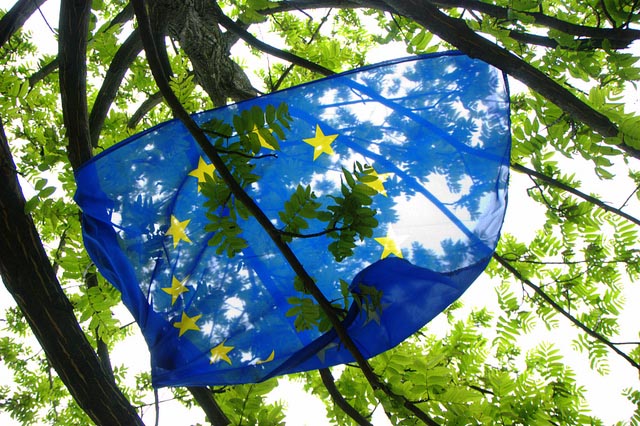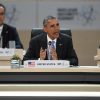
Niccolò Caranti / Flickr. Creative Commons License Attribution-NonCommercial.
Austria, which sometimes sets trends –Jörg Haider, of the right-wing Austrian Freedom Party, FPÖ, entered government in 2000, triggering ineffective diplomatic sanctions on the part of the EU–, has seen a comfortable victory (36.4%) for Norbert Hofer, the FPÖ candidate, in the first round of presidential elections, with a campaign built around two themes: hostility to immigration and hostility to Europe. The Green candidate came second. The two major parties, the Conservatives and the Social Democrats, which govern in coalition, were left trailing. Although the role of the President is largely ceremonial (the second round takes place on 22 May), things do not bode well for the general elections scheduled for 2018.
In France it looks almost certain that Marine Le Pen, leader of the National Front, will go through to the second round of the presidential elections in 2017 and may even win if her opponent is the current President, socialist François Hollande. Over the border, the Alternative for Germany (AfD) –which is forcing Angela Merkel to change her tune (no trivial matter considering this is the country in the driving seat in Europe)– grows apace. The new Polish government wants to move to ‘less Europe’; likewise Orbán’s in Hungary. In the UK, if the Brexit faction emerges victorious in the referendum of 23 June, Cameron will have to pack his bags and could be replaced by Boris Johnson.
It scarcely bears imagining what the European Council would be like presided over by such leaders, the EU beset by mounting crises, growing anti-European sentiment (‘Euroscepticism’ hardly covers it), borders being reinstated and the middle classes going into reverse. It is the ‘revenge of globalisation’s losers’, as Wolfgang Münchau puts it: a reaction not only to the crisis, but also to the way it has been dealt with, after the lurch away from a neo-Keynesian response in 2010, diverging more and more from the Obama approach in the US.
A wonderful Philip Roth novel, The Plot Against America, published in 2004, posits the famous pilot and fanatical isolationist Charles Lindbergh winning the 1940 presidential election against Franklin D. Roosevelt on an anti-Jewish ticket and coming to an agreement with Adolf Hitler. To some extent it foreshadows what we are witnessing now, mutatis mutandis, in the primary campaign of Donald Trump, the tycoon who appeals to middle-class white men fallen on hard times and who claims to admire Vladimir Putin. The Russian President also has an admirer in Le Pen and other right-wing extremists, and cultivates left-wing populism in Europe, as has been noted in this column before.
Is Putin really the one who lies behind, at least in part, this tidal wave against Europe and against the EU (taking his opposition to NATO as read)? In a recent interview he gave to CBS during his visit to Europe, Barack Obama, as well as defending a strong and united Europe (he had already warned against Brexit in London), cautioned that Putin was exploiting the divisions at the heart of the EU.
‘But more importantly, more strategically, is the strain it’s putting on Europe’s politics, the way it advances far-right nationalism, the degree to which it is encouraging a break-up of European unity, that in some cases, is being exploited by somebody like Mr. Putin’,
said Obama, according to whom the Russian President sees the EU and transatlantic unity as a threat. Are we in the midst of a plot against Europe, à la Roth? Imagine Presidents Trump in Washington, Le Pen in Paris and Putin in Moscow.
But the plot against Europe comes above all from within European societies, from a politics that is failing on the national and European stages, whether in its collective manifestations (the European Council, the European Parliament), in the lack of leadership evident in such a key institution as the European Commission, or in domestic politics. It stems from a profound social and identity crisis that has led countries to withdraw into themselves, to the reappearance of borders, to rejecting the outsider, including other Europeans, let alone Muslims, many of whom were born in Europe and are citizens of its member states.
Despite criticisms from wide sections of society directed against the policy of austerity, there is no plot against Europe in Spain. But when Europe goes badly, Spain goes badly. In the absence of a European project, or if the project is one of less Europe, the Spanish project struggles to get off the ground.


